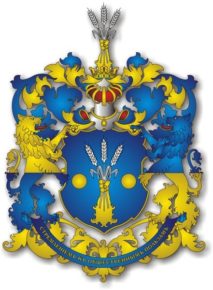PARALLEL HORRORS: A Comparative Analysis of Israeli and Ukrainian Wars For Freedom
In this article we will be comparing the similarities of Jewish Holocaust and how Jewish people were treated during WWII by Hitler’s Germany and two past wars in Ukraine by first with bolshevik Russians and then the modern invasion of 2014 and 2022.
The Holocaust, perpetrated by Adolf Hitler’s Nazi Germany during World War II, remains one of the darkest chapters in human history. The systematic genocide of 6 million Jews shocked the world and left an indelible scar on the collective human conscience.
While the Holocaust is a unique atrocity, there are unsettling parallels between the treatment of Jewish people during WWII and the two recent wars in Ukraine – the first by bolshevik Russia and the more recent invasions of 2014 and 2022.
In this article, we will explore these similarities and the lessons they offer about the consequences of unchecked aggression and prejudice.
Dehumanization and Propaganda
One of the striking similarities between the Holocaust and the Ukrainian wars for freedom is the systematic dehumanization of the targeted groups through propaganda. In Nazi Germany, Jews were portrayed as subhuman and responsible for society’s ills, using derogatory terms and caricatures. Similarly, during the Bolshevik era, the Ukrainian population was vilified as enemies of the state, particularly during the Holodomor famine-genocide of the early 1930s. In more recent times, the propaganda machine employed by Russia depicted Ukrainians as “fascists” and “neo-Nazis” to justify military aggression.
For both the Jewish Holocaust and the Ukrainian wars, propaganda played a critical role in justifying discrimination, violence, and ultimately, mass murder. This illustrates how dehumanization, when combined with political objectives, can lead to devastating consequences.
Forced Relocation and Displacement
Another parallel between these historical events is the forced relocation and displacement of populations. During WWII, Jews were rounded up and sent to concentration camps, ghettos, or mass execution sites. Similarly, in both the Soviet era and the recent Ukrainian conflicts, many Ukrainians faced forced deportation, imprisonment, or displacement from their homes. The actions of the Bolsheviks and the Russian invasions of Crimea and Eastern Ukraine in 2014 and full scale invasion in 2022 led to a significant number of Ukrainians becoming internally displaced or seeking refuge abroad.
This pattern of forced displacement highlights how vulnerable populations can be uprooted and marginalized as a result of political manic decisions and military aggression.
Persecution and Mass Killings
The most horrifying similarity is the persecution and mass killings that occurred during these events. In the Holocaust, millions of Jews were systematically exterminated through methods such as mass shootings, gas chambers, and forced labor camps. Similarly, during the Ukrainian wars, countless Ukrainians were killed or disappeared, particularly during Stalin’s Great Purge and the Holodomor. More recently, the Russian invasions resulted in thousands of casualties, mass graves, torture underground chambers, and ongoing violence against civilians in all over Ukraine.
Resilience and Resistance
Amidst unimaginable circumstances, both Jews and Ukrainians exhibited remarkable resilience and resistance. Jewish resistance fighters in ghettos and concentration camps, such as the Warsaw Ghetto Uprising, showcased the unyielding spirit of a people determined to fight for their freedom. Similarly, Ukrainians resisted foreign invasions, fighting for their independence and the right to self-determination and dignity, even in the face of overwhelming odds.
Importance of Remembrance
The Holocaust and the Ukrainian wars serve as haunting reminders of the consequences of prejudice, intolerance, and unchecked aggression. Remembering these events is essential to honoring the memory of the victims and preventing such atrocities from recurring. Museums, memorials, and educational programs play a crucial role in preserving the historical truth and fostering understanding among future generations.
International Responses
Both the Jewish Holocaust and the Ukrainian wars elicited varied international responses. While the Holocaust led to the establishment of Israel and a global commitment to “never again,” the Ukrainian wars prompted widespread condemnation but also highlighted geopolitical complexities. The importance of international unity in addressing such crises is evident, emphasizing the need for diplomatic efforts and collaborative solutions including collective military preventive / immediate responses instead of waiting for a culprit to strike again.
These atrocities underscore the grave consequences of unchecked aggression, prejudice, and the willingness to use extreme violence against targeted groups.
While the Holocaust is a singular event in history, the similarities between the treatment of Jewish people during WWII and the Ukrainian wars are undeniable. The use of propaganda to dehumanize, forced displacement of populations, and the persecution and mass killings of innocent people are common threads that link these events.
It is crucial to remember these historical tragedies and their parallels as a reminder of the catastrophic consequences of unchecked aggression and discrimination. By understanding these similarities, we can work towards preventing such horrors from happening in the future and strive for a world where tolerance, peace, and respect for human dignity prevail over hatred and violence.
History bears witness to the atrocities committed against various communities, leaving indelible scars on the collective human conscience. Two significant events, the Jewish Holocaust during World War II and the wars in Ukraine, particularly the Bolshevik invasion in the early 20th century and the modern invasions of 2014 and 2022, share disturbing similarities.
The Jewish Holocaust and the Ukrainian wars, separated by time and context, echo similar themes of persecution, resilience, and the importance of remembrance. These events serve as powerful reminders of the darkest corners of human history and emphasize the collective responsibility to promote peace, tolerance, and understanding. By acknowledging these shared narratives, we pave the way for a more compassionate and enlightened future, one where the lessons of the past guide us toward a world free from hatred and violence.
